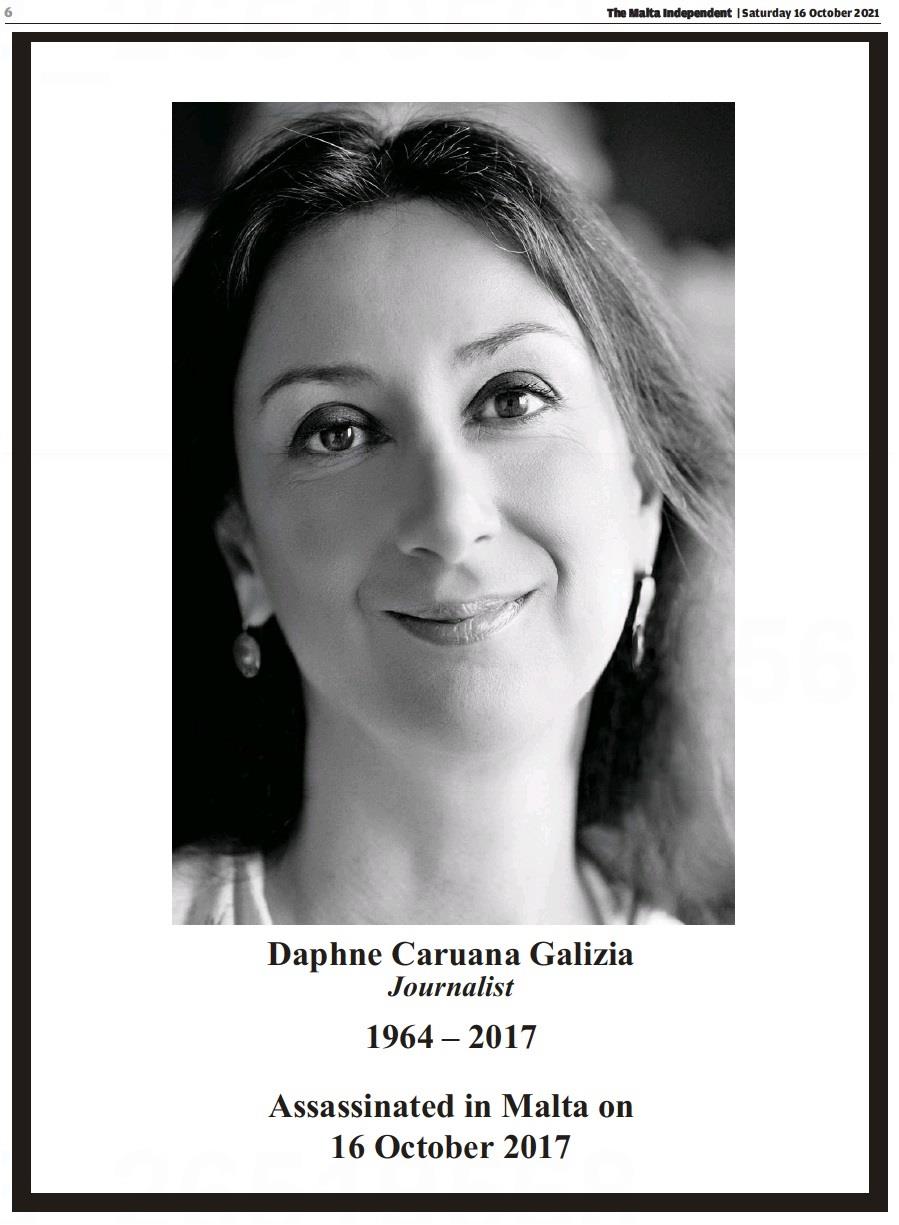Four years ago today, at around 3pm in the afternoon, a bomb went off and the country came to a halt.
That Daphne Caruana Galizia was brutally assassinated because of the stories she was working on as a journalist is today, and in truth always has been, of no doubt.
The aim was clear: silence her once and for all, so that the wrongdoing which was already ongoing by that time can be allowed to go on with impunity.
And yet, while Daphne is no longer physically with us, her legacy remains apparent in more ways than one.
It was almost poetic how it was the continuation of Daphne’s work, arrests made in relation to her case, and the action of civil society which finally brought down Joseph Muscat’s premiership – the same Joseph Muscat who led the State which a public inquiry found to be responsible for creating an environment which enabled the assassination to take place.
Since then, instead of retreating from the scene, journalists have taken up the mantle and continued to investigate the leads which Daphne had been working on. Revelations on the Electrogas power station and on Malta’s golden passport scheme through the Passport Papers are just two examples of how Daphne’s legacy lives on in the stories which make the headlines today.
Her death has also mobilised a civil society presence which has rarely been seen in Malta’s history. It’s a presence which has been consistent, and which – although it hasn’t been perfect – has worked tirelessly for the upkeep of the rule of law and the fight against impunity by the state and those close to it.

However, when speaking about Daphne’s legacy – we must also consider how much the State and the powers that be have taken that into consideration.
It’s a start that – at least – Robert Abela’s government hasn’t made a habit of trying to erase Daphne’s memory by having state henchmen clear out a memorial to her – but that is of little worth when barely any further action in favour of reform has been taken.
While Abela has said that he is committed to implementing the recommendations made by the public inquiry in Daphne’s death, there has been little more than a cursory debate in Parliament right after the report was published.
More action needs to be taken in order to recognise journalism as a key part of a strong democracy.
That needs to come in terms of legislative change, but also in terms of an attitude change. The government cannot harp on about the importance of journalism when at the same time it consistently fails to or refuses to answer questions posed to it by those same journalists.
Likewise, both political parties cannot keep harping on about strengthening journalism and advocating for good journalism where its own media houses seem intent on butchering the truth to suit their own needs or to ignore it altogether.
Daphne’s legacy – even now, four years after she was murdered – remains strong. The ball however remains in the park of those in power to act on it and to protect journalism so that such a thing can never happen again.